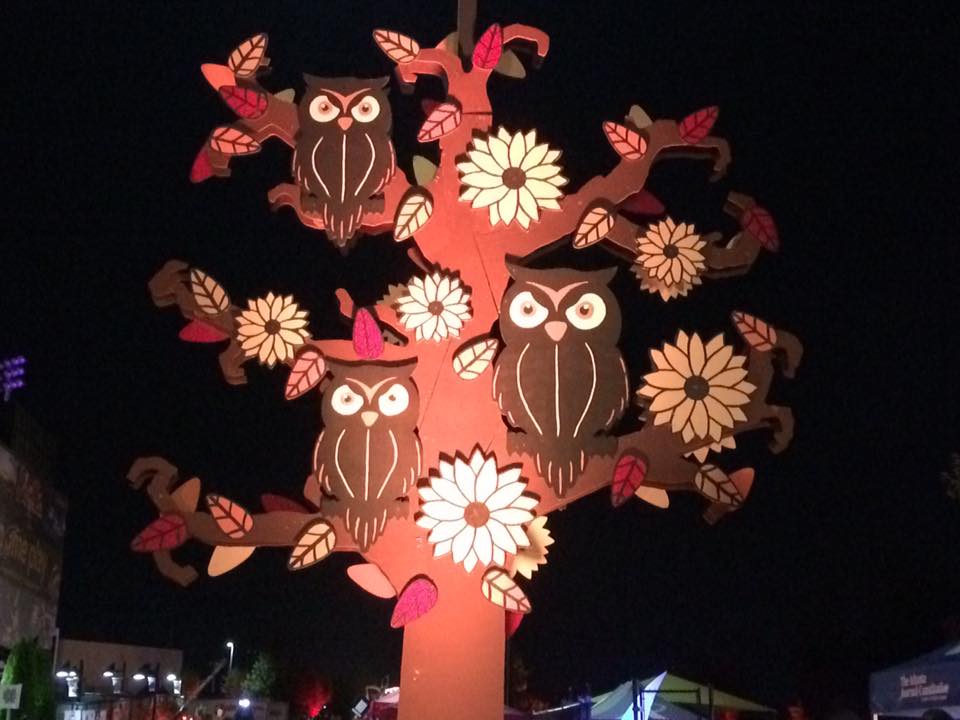
It’s October, a strange time of the year where spooky and supernatural things are dressed up in costumes and set out on suburban lawns. Truth be told, Halloween really isn’t my thing. I don’t like scary movies or unexpected visitors, and as I have chocolate in the house year-round, even the candy aspect is a bit of a miss. What I do like, however, is a nice dose of cultural quirks. Therefore, in lieu of ghosts and goblins, this month, I’m sharing my favorite international superstitions, all of which I’ve either heard from my students and/or have experienced myself abroad. Nothing creepy or crawly here, I promise!
The first superstition I thought of is a simple one that I experienced often when I was in China. Much like how we view the number seven as lucky and the number 13 as unlucky, the Chinese, too, have their superstitions regarding certain numbers. One of the strongest of these is about the number four. The number four is generally avoided in China. Elevators will often skip that floor number altogether, and any room numbers or phone numbers that happen to have too many inauspicious fours in them are often shunned as well. So, what makes the number four so unlucky in China? It’s actually the pronunciation of the word. In Mandarin the number four is pronounced [sì], which is unfortunately similar to the word [sǐ] or “death”.

Speaking of death (it is Halloween after all…) in South Korea, a common superstition is that sleeping in a closed room with a running fan might actually kill you. This is such a common superstition that “fan death” has its own Wikipedia page. Although the alleged cause of death for these unexplained casualties has never been proven (or even agreed upon), warnings are still commonplace throughout the country. Bet you’ll never look at that unassuming appliance in the corner of your room the same way again!
Another death-related superstition I recently heard comes from Kenya, where owls are actually seen not as wise, candy-crunching mentors, but instead as harbingers of death. Seeing an owl in Kenya is believed to be a bad omen because it means that death will strike soon. Could be you, could be a family member, but you can be sure it’ll be close and quick. Even the local words used for “owl” are often avoided as they might bring about the birds themselves (and subsequently an untimely death). Perhaps Hedwig was the true cause of Harry’s continued misfortunes…

Bad luck is understandably a pretty common thing to be superstitious about, but my favorite superstitions involving bad luck are the ones that can be traced back to an event or custom in a culture’s history. One example of this would be the fact that it is considered unlucky in France to eat a baguette or loaf of bread that has been kept upside down. This belief is said to come from an old practice of leaving upside-down bread loaves out for the town executioner to pick up. No one would want to anger an executioner by accidently eating his bread, right?

Two other superstitions that come to mind when I think about bad luck come from Poland and Mexico. In Poland, we were told not to count any perogies that are being cooked. It’s simply bad luck to do so, and it may result in a ruined dinner. In Mexico, to escape a bit of bad luck, you should avoid sweeping at night because that, too, can bring a curse down on your house. Additionally, even when daytime sweeping in Mexico, you shouldn’t sweep the dirt straight out your front door, otherwise all your good luck will leave with it too. I knew I should have swept it under the rug instead!
If bad luck to you means losing money, then you shouldn’t put your purse or wallet on the floor. In Brazil (and many other countries) this action or even the accidental dropping of your purse/wallet could mean that you’re about to lose a lot of money or else have some other, serious financial difficulties.
In addition to good and bad luck, many other superstitions seem to be concerned with friends and enemies. For example, in Mongolia if you happen to touch someone’s foot or step on their shoe, you should immediately shake hands as a sign of good faith and friendship. If you do not, it means that conflict is on the horizon and that your relationship might be strained in the future. This superstition is so prevalent that even strangers who accidently bump feet will turn and shake hands to combat the negative consequences.

In another shoe-related superstition, in Egypt, it is considered disrespectful to leave your shoes with their soles facing up. Stemming from ancient Egyptian beliefs, this can be seen as a slight against God, thus a possible omen of bad events (or in a mixing of religious terms, bad karma) heading your way. This superstition also seeps into etiquette because it is also seen as rude to sit with your soles pointing towards another person.

In Turkey, it’s sharp objects (or at least passing them to others) that can cause you to lose friends. For example, handing over a pair of scissors might been seen as the cause of a severed relationship in the future. It’s more prudent to set the sharp things on a nearby table than to hand them over directly.
On the other hand, if you find that you want to get rid of an unwelcomed friend, or a visitor that has over-stayed their welcome, in the Philippines, there is a superstition that says sprinkling salt around your house will cause a visitor to leave. I wonder if you throw salt over your shoulder at the same time will the results be magnified or canceled out?

Other common superstations revolve around mystical creatures and the magic they bring. In Peru, dragonflies are believed to be connected with sorcery and can bring evil to those whom they touch. Luckily, also in Peru, ladybugs are counters to the devious dragonflies, and they can indicate that good luck is on the way.
Some creatures, however, can be related to both good and bad superstitions, as with the Icelandic elves. These “hidden people” are woven into many beliefs and even holiday celebrations in Iceland. For example, there are stories about construction projects being halted because the plans didn’t take into account the feelings and habits of the local elves. They really must be consulted if you want things to run smoothly. I’ve also heard they throw some pretty awesome Christmas parties.

And there you have it! A well-rounded 13 international superstitions to keep you up at night wondering how many times you brought the bad luck on yourself with your unsuspecting actions. Perhaps this explains all the bad juju in 2020? Something to think about! Happy Halloween! 😉

Nicely done…..
LikeLiked by 1 person